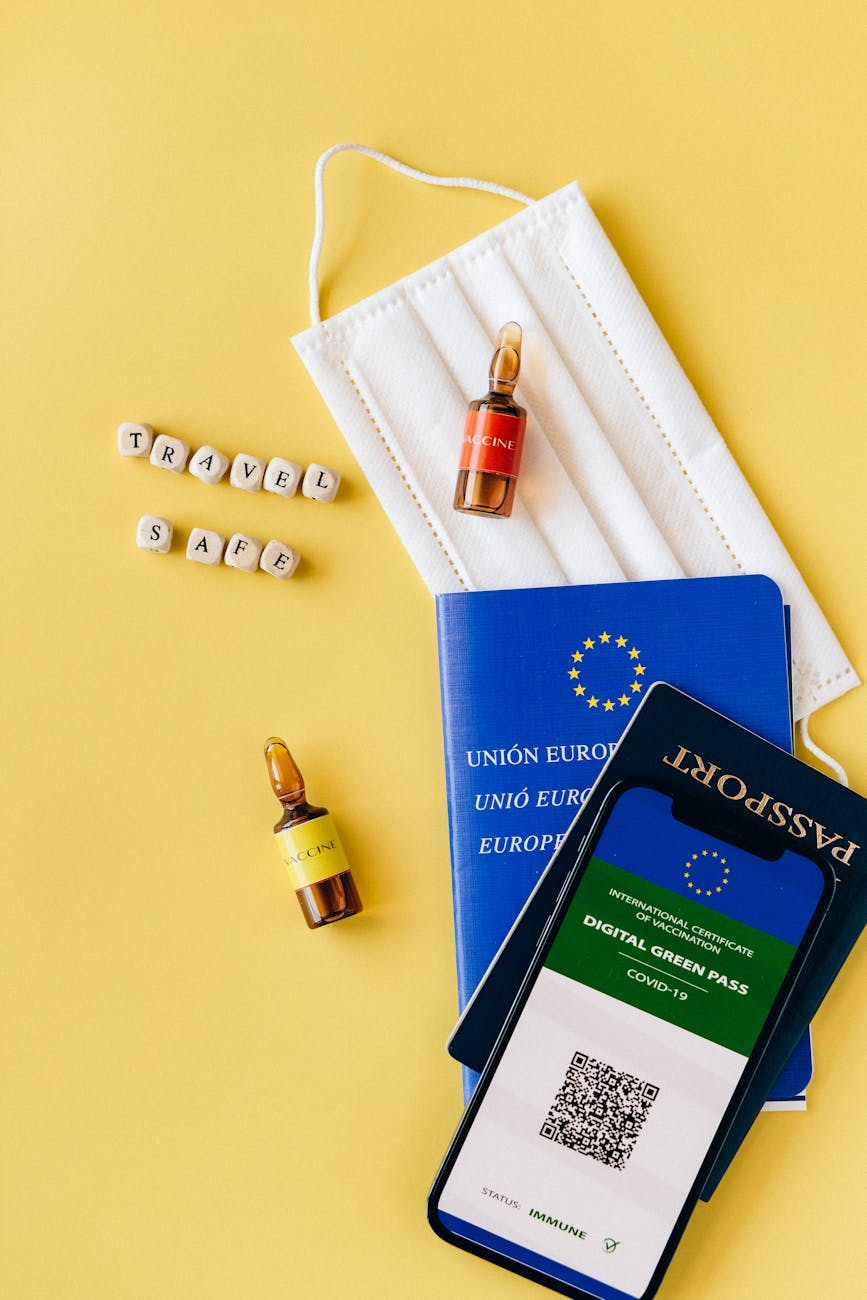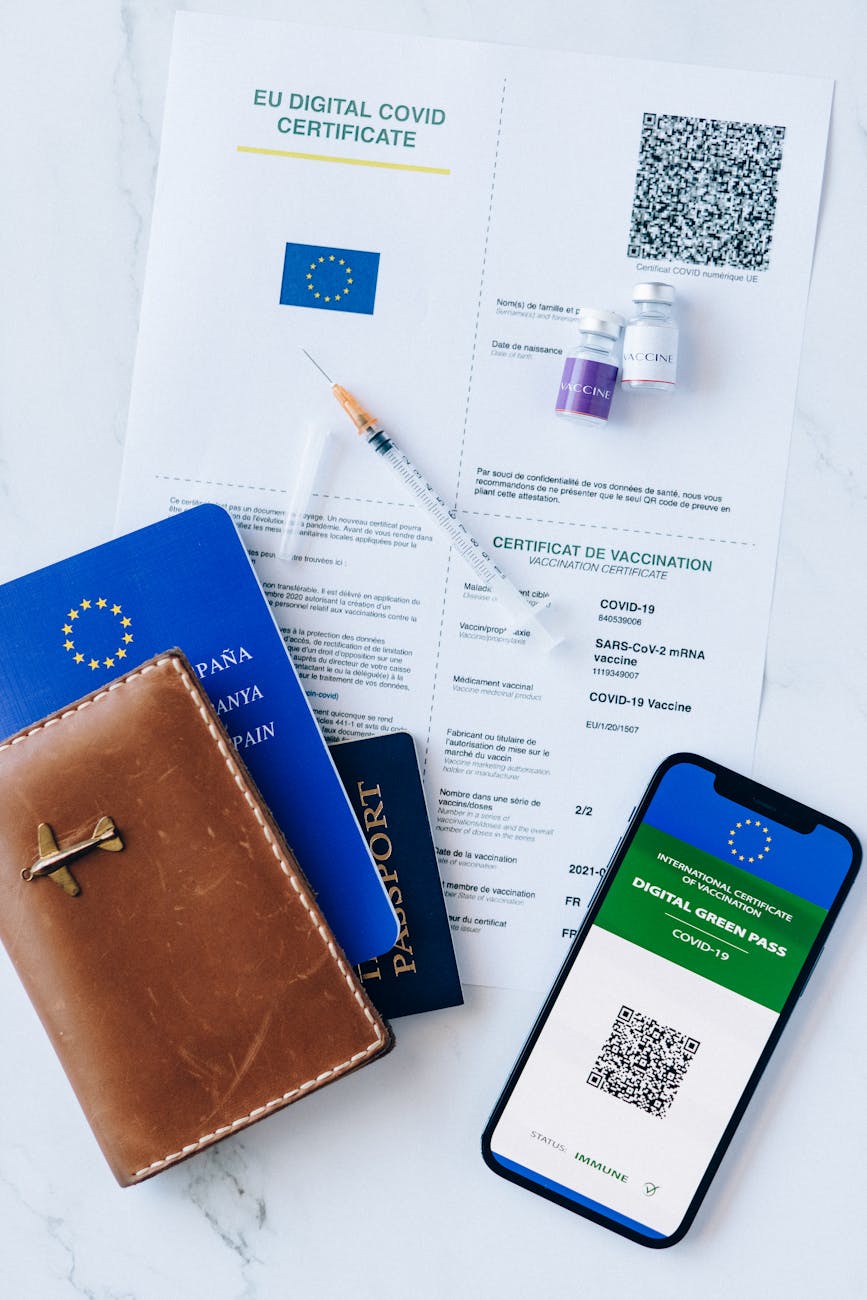Are you ready for an unforgettable journey to Thailand, a destination marked by stunning landscapes, rich culture, and welcoming smiles? However, amidst the excitement of planning your trip, there are essential health tips that shouldn’t be overlooked. This guide not only unveils the breathtaking attractions but also equips you with critical health advice that ensures your adventure is safe and enjoyable. Ignoring these key tips could dampen your experience, so let’s dive into the wonders of Thailand while remaining mindful of your wellness.
Whether you’re trekking through the lush jungles of Chiang Mai or savoring street food in Bangkok, this post combines valuable insights into traveling to Thailand with vital health precautions. Prepare yourself for an enriching and hassle-free experience by being well-informed. Let’s navigate through these insights and ensure that your trip becomes a cherished memory for years to come.
Table of Contents
- Understanding Cultural Sensitivity in Thailand
- The Importance of Vaccinations before Traveling
- Safe Food Practices to Enjoy Thai Cuisine
- Essential Sun Protection Strategies
- Mosquito Control and Prevention
- Staying Hydrated in Thailand’s Humid Climate
- Health Resources Available in Thailand
Understanding Cultural Sensitivity in Thailand
When visiting Thailand, a profound awareness of cultural practices is paramount to fostering positive interactions with locals. The Thai culture is woven with threads of respect, particularly towards the royal family and religious traditions. For instance, it’s customary to remove shoes when entering homes and certain temples, a gesture of respect that is deeply appreciated by the hosts. Failing to adhere to these cultural nuances not only appears disrespectful but can also hinder your experience. Hence, arming yourself with some basic knowledge about Thai customs can greatly enhance your journey.
Furthermore, be sensitive to the local dress code, especially when visiting sacred sites. Wearing modest clothing that covers shoulders and knees is a sign of respect, and it will enable you to explore these revered places without discomfort or disapproval. Engaging with locals can lead to delightful conversations and memorable exchanges, but understanding and respecting their culture is essential. Ultimately, showing respect can open doors to authentic connections, enriching your time in Thailand beyond mere sightseeing.
The Importance of Vaccinations before Traveling
Before embarking on your Thailand adventure, ensuring that your immunizations are up to date is crucial for your health and safety. Experts recommend essential vaccinations such as Hepatitis A and B, Typhoid, and Tetanus. These vaccinations protect against diseases that can be contracted through contaminated food and water or insect bites. Consulting with a healthcare provider at least six weeks before your departure allows adequate time for vaccinations to take effect and can provide you with personalized advice tailored to your travel itinerary.
Moreover, it’s not unusual to find travelers who, having ignored this vital step, experienced health issues that could have been easily avoided. For instance, Hepatitis A is prevalent in many regions, and the risk is heightened in crowded areas where food hygiene might be questionable. By prioritizing health through vaccinations, you not only secure your wellbeing but also take proactive measures to enjoy your trip to the fullest without health-related distractions or interruptions.
Safe Food Practices to Enjoy Thai Cuisine
Indulging in Thai food is often the highlight of travel, but ensuring food safety while savoring these culinary delights is essential. Street food stalls teem with flavors and local ingredients, tempting travelers to dive right in. However, it’s crucial to choose vendors that maintain a high standard of hygiene. Observing the cleanliness of cooking utensils and the freshness of ingredients can help in making wise choices. Additionally, consuming freshly cooked meals while they are still hot minimizes the risk of foodborne illnesses.
Moreover, consuming bottled water is vital in Thailand, as tap water may harbor potentially harmful bacteria. Always check that the seal on the bottle is intact to avoid counterfeit products. By taking these basic precautions, you can relish the vibrant flavors of Thai cuisine without the fear of stomach discomfort that can mar a fantastic voyage. Enjoying food safely empowers you to taste your way through Thailand with confidence and joy.
Essential Sun Protection Strategies
Thailand’s tropical climate means sun exposure is a significant factor to consider during your trip. Protecting yourself from harsh UV rays is vital to avoid sunburn, dehydration, and heat-related illnesses. A broad-spectrum sunscreen with at least SPF 30 is your best ally, but applying it generously and reapplying every two hours—especially after swimming—is key to its effectiveness. Hats, sunglasses, and lightweight, long-sleeved clothing further assist in shielding your skin.
Additionally, avoiding sun exposure during peak hours, typically between 10 AM and 4 PM, can significantly reduce the risk of overheating and sunburn. Incorporating these sun safety tips into your daily routine allows you to enjoy outdoor activities without compromising your health. Ultimately, being proactive about sun protection cultivates a carefree exploration of beautiful beaches, temples, and bustling street markets, ensuring you’re energized for every adventure.
Mosquito Control and Prevention
In the enchanting landscapes of Thailand, mosquitoes can pose a health risk, particularly due to diseases like dengue fever and malaria. Firstly, employing insect repellent that contains DEET or Picaridin effectively deters these pests, allowing you to explore without concern. Additionally, investing in mosquito nets for sleeping and wearing loose-fitting clothing during the evening hours can further reduce your risk of bites.
It’s wise to plan your accommodations strategically; opt for places that prioritize mosquito control practices, such as screened windows or air-conditioning. Moreover, avoid standing water, where mosquitoes breed, thereby minimizing exposure. Staying informed, vigilant, and prepared empowers travelers to thoroughly enjoy Thailand’s natural beauty while safeguarding against health risks related to mosquito-borne illnesses.
Staying Hydrated in Thailand’s Humid Climate
Thailand’s tropical climate brings high humidity levels, making hydration a top priority during your travels. Dehydration can occur faster than one might imagine, especially on days filled with exploration, whether trekking through jungles or exploring bustling markets. Carrying a refillable water bottle and consuming plenty of fluids replenishes what your body loses through sweat. Always opt for safe drinking water, avoiding ice from uncertain sources to protect yourself from potential contamination.
Incorporating hydrating foods, such as fruits like watermelon and coconut, can additionally enhance your hydration levels. Monitoring signs of dehydration such as dry mouth or dark urine signals that it’s time to drink more fluids. By prioritizing hydration, you’ll maintain energy levels and enhance your overall enjoyment. Therefore, keeping your body well-fueled allows you to experience every aspect of Thailand, from its serene landscapes to its vibrant nightlife, fully and energetically.
Health Resources Available in Thailand
While preparation dramatically reduces health risks, it’s essential to know where to seek help should the unexpected arise. Thailand features several private hospitals and clinics that meet international health standards, particularly in urban areas. Many medical professionals speak English, condensing your worry in case of sudden illness or injury. Understanding the location of these health facilities before your travel allows you to feel more secure, knowing support is readily accessible if needed.
Additionally, travelers can often find pharmacies stocked with over-the-counter medications for minor ailments, providing immediate relief. Being aware of emergency contact numbers and learning basic phrases in Thai related to health issues can facilitate smoother communication. Ultimately, proactive planning includes knowing when and where to access health resources, allowing you to navigate your trip with peace of mind and confidence.
Embrace Your Thailand Adventure with Confidence
The allure of Thailand beckons with its stunning landscapes, rich cultural heritage, and flavors that tantalize the taste buds. However, the key to a fulfilling experience lies in balancing excitement with essential health precautions. By prioritizing vaccinations, practicing safe food consumption, applying sun protection, and staying hydrated, you are well on your way to creating unforgettable memories in this captivating country. Embrace your journey confidently, equipped with knowledge, so you can immerse yourself fully in the beauty that Thailand has to offer.
Frequently Asked Questions
- What vaccinations do I need before traveling to Thailand?
It is advisable to be up-to-date on vaccinations for Hepatitis A and B, Typhoid, and Tetanus. Consulting a healthcare provider for personalized recommendations based on your travel plans is essential. - How can I stay safe while enjoying street food in Thailand?
Choosing vendors who maintain high hygiene standards, opting for freshly cooked meals, and drinking bottled water can minimize health risks while indulging in the local cuisine. - What are effective ways to protect against mosquito bites?
Using insect repellent with DEET, wearing protective clothing, and staying in accommodations with effective mosquito control are key strategies for prevention. - How can I stay hydrated in Thailand’s humid climate?
Carry a refillable water bottle, avoid ice from uncertain sources, and consume hydrating fruits to maintain proper hydration levels during your travels. - Where can I find medical help in Thailand?
Private hospitals and clinics with international standards are available in major cities, and many medical professionals speak English to assist travelers effectively.
Image Credit: Pexels





